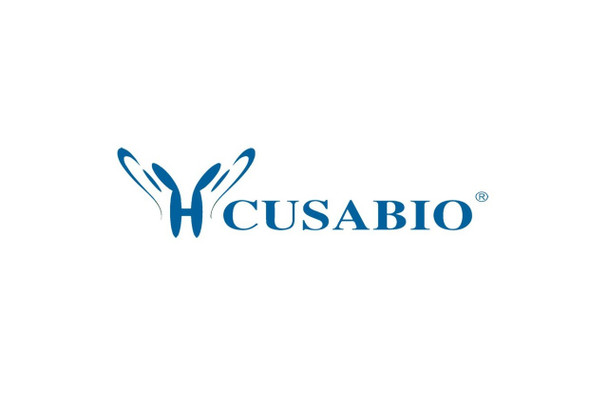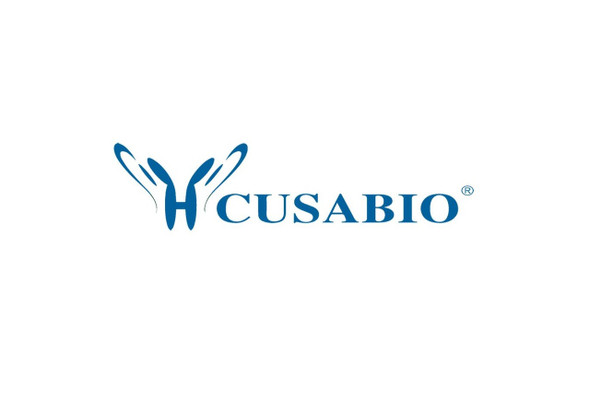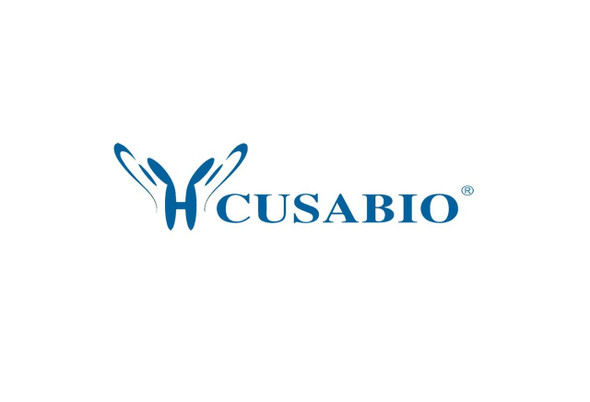Cusabio Mouse Recombinants
Recombinant Mouse Annexin A1 (Anxa1) | CSB-EP001836MO
- SKU:
- CSB-EP001836MO
- Availability:
- 3 - 7 Working Days
Description
Recombinant Mouse Annexin A1 (Anxa1) | CSB-EP001836MO | Cusabio
Alternative Name(s): Annexin I;Annexin-1;Calpactin II;Calpactin-2;Chromobindin-9;Lipocortin I;Phospholipase A2 inhibitory protein;p35
Gene Names: Anxa1
Research Areas: Others
Organism: Mus musculus (Mouse)
AA Sequence: AMVSEFLKQARFLENQEQEYVQAVKSYKGGPGSAVSPYPSFNVSSDVAALHKAIMVKGVDEATIIDILTKRTNAQRQQIKAAYLQENGKPLDEVLRKALTGHLEEVVLAMLKTPAQFDADELRGAMKGLGTDEDTLIEILTTRSNEQIREINRVYREELKRDLAKDITSDTSGDFRKALLALAKGDRCQDLSVNQDLADTDARALYEAGERRKGTDVNVFTTILTSRSFPHLRRVFQNYGKYSQHDMNKALDLELKGDIEKCLTTIVKCATSTPAFFAEKLYEAMKGAGTRHKALIRIMVSRSEIDMNEIKVFYQKKYGISLCQAILDETKGDYEKILVALCGGN
Source: E.coli
Tag Info: N-terminal 6xHis-tagged
Expression Region: 2-346aa
Sequence Info: Full Length of Mature Protein
MW: 42.6 kDa
Purity: Greater than 90% as determined by SDS-PAGE.
Relevance: Calcium/phospholipid-binding protein which promotes mbrane fusion and is involved in exocytosis. This protein regulates phospholipase A2 activity. It ses to bind from two to four calcium ions with high affinity.
Reference: SIRT5-mediated lysine desuccinylation impacts diverse metabolic pathways.Park J., Chen Y., Tishkoff D.X., Peng C., Tan M., Dai L., Xie Z., Zhang Y., Zwaans B.M., Skinner M.E., Lombard D.B., Zhao Y.Mol. Cell 50:919-930(2013)
Storage: The shelf life is related to many factors, storage state, buffer ingredients, storage temperature and the stability of the protein itself. Generally, the shelf life of liquid form is 6 months at -20?/-80?. The shelf life of lyophilized form is 12 months at -20?/-80?.
Notes: Repeated freezing and thawing is not recommended. Store working aliquots at 4? for up to one week.
Function: Plays important roles in the innate immune response as effector of glucocorticoid-mediated responses and regulator of the inflammatory process. Has anti-inflammatory activity
Involvement in disease:
Subcellular Location: Nucleus, Cytoplasm, Cell projection, cilium, Basolateral cell membrane, Lateral cell membrane, Cell membrane, Peripheral membrane protein, Apical cell membrane, Membrane, Peripheral membrane protein, Early endosome, Cytoplasmic vesicle membrane, Peripheral membrane protein, Endosome membrane, Peripheral membrane protein, Secreted, Secreted, extracellular space, Cell membrane, Peripheral membrane protein, Extracellular side, Secreted, exosome, Cytoplasmic vesicle, secretory vesicle lumen, Cell projection, phagocytic cup
Protein Families: Annexin family
Tissue Specificity: Detected in lung (PubMed:12475898, PubMed:17384087). Detected at the apical membrane of airway epithelial cells (PubMed:17384087). Detected in intestinal epithelial cells (PubMed:18802107). Detected in skeletal muscle (PubMed:14506282). Detected in prostate (PubMed:23727357). Detected in thymus (at protein level) (PubMed:12475898). Detected in stomach, lung, spleen, ovary and uterus, and at lower levels in kidney, thymus and heart (PubMed:12475898).
Paythway:
Form: Liquid or Lyophilized powder
Buffer: If the delivery form is liquid, the default storage buffer is Tris/PBS-based buffer, 5%-50% glycerol. If the delivery form is lyophilized powder, the buffer before lyophilization is Tris/PBS-based buffer, 6% Trehalose, pH 8.0.
Reconstitution: We recommend that this vial be briefly centrifuged prior to opening to bring the contents to the bottom. Please reconstitute protein in deionized sterile water to a concentration of 0.1-1.0 mg/mL.We recommend to add 5-50% of glycerol (final concentration) and aliquot for long-term storage at -20?/-80?. Our default final concentration of glycerol is 50%. Customers could use it as reference.
Uniprot ID: P10107
HGNC Database Link: N/A
UniGene Database Link: UniGene
KEGG Database Link: KEGG
STRING Database Link: STRING
OMIM Database Link: N/A









